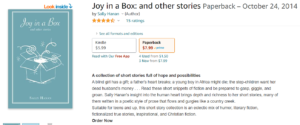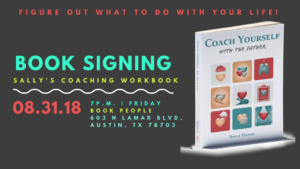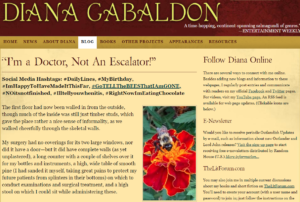Book Marketing Plan — Before Your Book Release
You’re ahead of thousands of authors if you plan your book marketing long before your book is ever published.
Penny Sansevieri is the queen of this, and she has plenty of books out on the subject. In her updated, 2019 edition of 5-Minute Marketing for Authors: Easy and effective ways to market your book every single day!, she lists a few basic requirements that set the stage for anything else you do, to include these listed below:
Basic Book Marketing Online Presence

- Cement your author name decision and use it on every following suggestion. Most authors use their own name and have found no additional benefit to using a pseudonym unless they also write in a very different genre.
- An optimized Amazon AuthorCentral page, if you have other books published.
- An optimized author website that is updated regularly.
- An interactive presence on some or all of the following — depending on how comfortable you feel on each one and how many friends or followers you have on them: A Goodreads account, a Facebook author page, and a Twitter, Instagram, and Pinterest account.
If you’re interested in practically everything you need to know and do about building your author platform, I recommend the “Obscure No More” course taught by the book marketing genius (no kidding) Thomas Umstattd. Definitely worth the price if you do everything he says. He also teaches a shorter “5-Year Plan to Become a Bestselling Author” course.
And now we move on to the particulars. Heads up — flagrant self-promotion in the form of the images I have chosen is included. 🙂
Book Description
Having the right keywords and keyword phrases in your book description can make a big difference in who sees your book. Have a look at many of the books in your genre that are selling well without the author being a brand name, and study the wording. Read more about this in Author Media’s post, “Search Engine Optimization for Author Websites.”
Book Category and Subcategory

Getting this right can make a big difference in the sections it shows up in on Amazon. For example, putting your Bible study on Esther in the General Christian category will pretty much guarantee it gets buried, while putting it in the Women’s Biblical Studies section will help women find it much faster. Penny talks about this in detail in her book.
Book Pictures
I love using Canva for this. I get to mess around with so many templates for each social media site I’m on, and I can have these images ready to go with any promotions or event info, like the one I made (above) a few years back.
Preorders
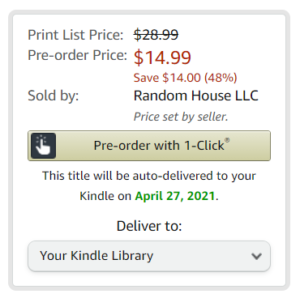
As soon as you have the launch date, set up a preorder button on Amazon. Right now, Amazon will only let you do this for e-books, but we hope that will change soon. Read more about how it works.
Promotions
Decide how much you are willing to discount the book by, and who you will offer these discounts to. Track all the promotion possibilities and their dates on a spreadsheet, and set up reminders in your calendar. The Goodreads Support for Indie Authors group can be a great resource for finding out what is currently working for authors.
Best Book Marketing Services
You can also use one of the many existing book marketing services for a fee. Many will let you choose from a menu of options and help you put your book marketing plan together. Have a look at the highly-rated BookTrib, Freebooksy, Robin Reads, Bargain Booksy, or BookBub. Results are usually better with paid promotions, with the aforementioned sites’ pricing starting at $30 to $500 per promo.
Reviews
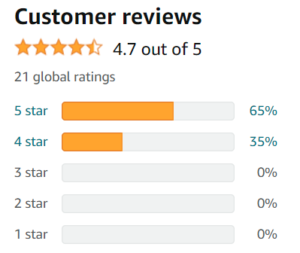
The more reviews you have ready to post, the better your book will look on Amazon, and if you can get more than fifty, Amazon will recommend the book on other people’s book pages.
There are a number of ways to get reviews in advance, but be careful to never offer any kind of benefit to the reviewers or you will be going against Amazon’s book review standards (and might have many of your legitimate reviews deleted). This includes review swaps, paid reviews, gifts in exchange for a review0151such as your book for free, and gift cards. Read Amazon’s community guidelines on reviews.
- Pre-publication readers — people who have offered to read your book and post their reviews once it goes live. Your newsletter subscribers are likely to be interested in this.
- Book review services — such as Books Go Social, Readers’ Favorite, BookRazor, or Net Galley.
- Book review bloggers — have a media kit ready on your website.
- Influencers you know — they will usually want compensation for sharing images or videos and talking about your book on their platforms. Companies like Westwind Communications will hire an influencer for you, along with doing other PR services, for a few thousand. See who Authorlink’s Writers & Readers magazine recommend.
- Some friends. Rarely family.
Visibility
Put some tailored queries together and send them to podcast hosts and bloggers who might be interested in interviewing you. Include a link to your media kit and a file with book images and info about the book. Thomas Umstattd, founder of Author Media, has a great post called “How to Advertise Your Book on Podcasts” about this.
Friends and Followers
Talk about the book you’re currently writing on your personal social media pages: This will get friends and family to associate your name with your being a writer and get them interested in reading your upcoming book.
Start a monthly newsletter: Readers who love your writing will appreciate being able to know about your next book earlier than everyone else. Add snippets of the book in each one and talk about your progress. Your existing readers are your greatest promoters, so giving them information in advance will make them feel appreciated.
Post snippets on your social media pages: The more opportunities you get to have eyes on your next book, the better. If it’s fiction, talk about the characters, the story, how the idea for it came to you. Add snippets, such as the one in the image above by Diana Gabaldon. If you’re writing nonfiction, share what you’ll be covering in the book, and talk about why you wrote it. Give a glimpse of each stage of the process—the editing, typesetting, and cover design.
In Summary
Having a book marketing plan is useless unless you actually carry it out, and it’s even more useless if you have a poorly edited book or the typesetting or cover looks terrible. Your reviews will reflect it.
As you already know, this is a massive hint to hire me so your book will look awesome. 🙂
Good luck!

